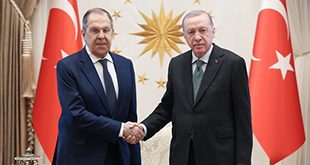At about the same time, United Muslims of America posted a message which said “most of the American Muslim voters refuse to vote for Hillary Clinton.”
– Ad purchases –
The Agency and its staff, concealing their Russian identities, “began to produce, purchase, and post advertisements” on social media and elsewhere online “advocating for the election of then-candidate Trump or expressly opposing Clinton.”
To pay for the ads, they fraudulently opened US bank accounts with fake identity papers, and used PayPal and cryptocurrencies.
US law forbids foreigners from buying political ads.
They also “organized and coordinated political rallies,” promoted through their fake social media accounts but also by reaching out to large social media groups focused on US politics.
– Organized rallies –
Florida, considered a “swing” state and ultimately won by Trump, was a particular target of those rallies in August 2016, dubbed “Florida Goes Trump.”
The accused contacted local Trump supporters, and paid an American “to wear a costume portraying Clinton in a prison uniform” at the rallies.
They also funded her trip to participate in a New York rally while wearing the same costume.
Rallies organized using “false US personas” continued even after the November 2016 election, including two on the same day in New York, one in support of Trump and the other opposed.
– Trump campaign contacts –
The indictment makes no allegation of collusion between Trump’s campaign team and Russia.
It says some of the accused, using fake US identities, communicated with “unwitting individuals associated with the Trump campaign.”
– The outcome –
Deputy Attorney General Rod Rosenstein told reporters there was no allegation that the propaganda campaign altered the outcome of the election, which Trump won.
 The Independent Uganda: You get the Truth we Pay the Price
The Independent Uganda: You get the Truth we Pay the Price


